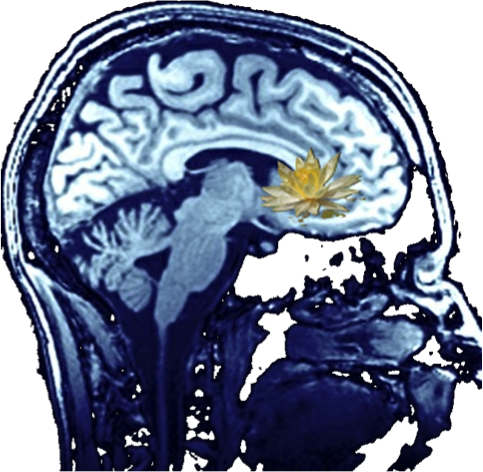Self-Regulation – Mechanisms and Modifications
What is Self-Regulation? In my clinical and research experience working in inpatient and outpatient neurorehabilitation, I observed that one of the greatest struggles for individuals with neurologic injury and illness is disruption in the capacity for self-regulation. Self-regulation represents the ability to monitor one’s own internal state on a moment-to-moment basis in the service of one’s own goals. For example, someone might be mad at their boss at work, but intact self-regulation would caution the individual to hold their anger in check in service of the goal of keeping their job. Likewise, self-regulation is essential in being able to stay on track to complete the many steps involved in a major project that spans across time.
Self-regulation is, by definition, something that needs to be updated moment-to-moment according to the situation. It is these moment-to-moment fluctuations or intra-individual variability across time and situation that can prove not only difficult to treat (given their unpredictable nature), but also result in some of the most profound challenges for the affected individual. As a result, impaired self-regulation can negatively impact most any domain of a person’s life, including interpersonal relationships, the ability to maintain employment, and engaging in daily activities. Self-regulation is a transdiagnostic factor, meaning that it is often a core impairment in various types of neurological disorders (e.g., traumatic brain injury, ADHD) as well as certain psychiatric disorders (e.g., anxiety disorders, PTSD, eating disorders).
How Do We Understand Self-Regulation? In our lab, we are interested in understanding how self-regulation of attention, emotion, and interoceptive (i.e., somatic) awareness underlie various disorders, as well as understanding their interplay in healthy individuals. We take a multi-method approach, having used self-report, cognitive/behavioral methods (e.g., laboratory tasks), and direct neural or physiological methods (e.g., magnetic resonance imaging, cognitive electrophysiology, heart-rate variability).
Currently our lab has a particular interest in the mind-brain-body impact of trauma and resilience, and how self-regulation may be a key factor in this context.
 Can Self-Regulation Be Improved? Developments in both animal and human neuroscience models have shown that experience-dependent neuroplasticity – or the capacity for the brain to change in direct response to experience – is possible after illness and injury, even in older adulthood. In fact, an accumulation of evidence over the past three decades indicates that various rehabilitation interventions can improve the lives of individuals with various cognitive and emotional difficulties that impinge upon their ability to live independently, work, and maintain fulfilling relationships (Mateer & Smart, 2013).
Can Self-Regulation Be Improved? Developments in both animal and human neuroscience models have shown that experience-dependent neuroplasticity – or the capacity for the brain to change in direct response to experience – is possible after illness and injury, even in older adulthood. In fact, an accumulation of evidence over the past three decades indicates that various rehabilitation interventions can improve the lives of individuals with various cognitive and emotional difficulties that impinge upon their ability to live independently, work, and maintain fulfilling relationships (Mateer & Smart, 2013).
Because of the rapid, in-the-moment nature of self-regulation, it is not a situation where someone can simply ‘think’ themselves into a better state. Rather, self-regulation may be a skill that one can practice and cultivate over time. Our lab has been examining various forms of contemplative practices as an exemplar for understanding the mechanisms of self-regulation, as well as investigating how self-regulation can be improved or enhanced through practices such as mindfulness meditation. We have examined the role of mindfulness training as an intervention in various neurologic populations, including traumatic brain injury (Azulay et al., 2013) and older adults with subjective cognitive decline (SCD; Smart et al., 2016; Smart & Segalowitz, 2017). The mindfulness training program I created for SCD – “Wisdom Mind” – will be available for the public in 2021 through Oxford University Press.
Drawing on the experience of long-term meditators, evidence suggests that various types of meditation practices lead to enhanced interoceptive awareness (i.e., awareness of our own internal bodily states), and this may be one mechanism by which meditators show greater self-regulation of emotional experience. As a result, our lab has also been working on developing and evaluating whether different body-based interventions can enhance self-regulation, and how this in turn may lead to a decrease in trauma symptoms or an increase in resilience to its ongoing effects. This includes the development of a new yoga program for adult survivors of childhood trauma, as well as a conscious dance (moving mindfulness) intervention for persons with complex PTSD.
Interoception is still somewhat of an unexplored frontier in scientific research, with many exciting discoveries to be made. We have recently partnered with Irene Lyon and the SmartBody SmartMind team to scientifically evaluate their 12-week interoceptive training program in March 2021. See our “Current Research Studies” page for more information. (And yes, it is just a happy coincidence that they have a similar name to our lab!)
